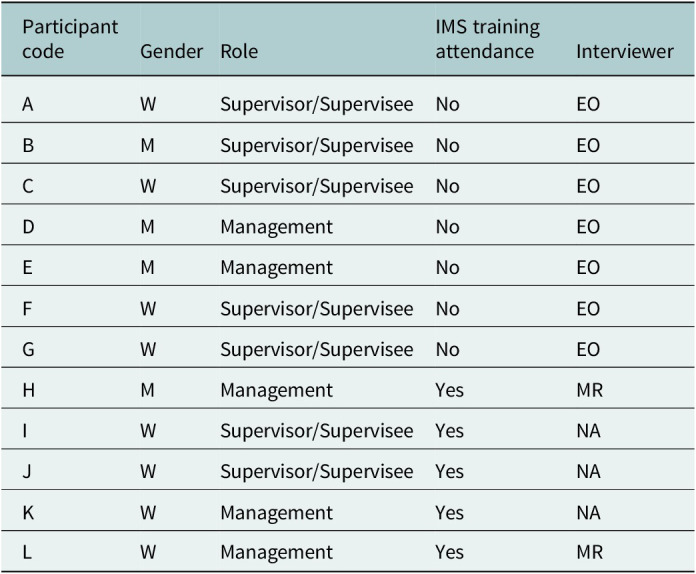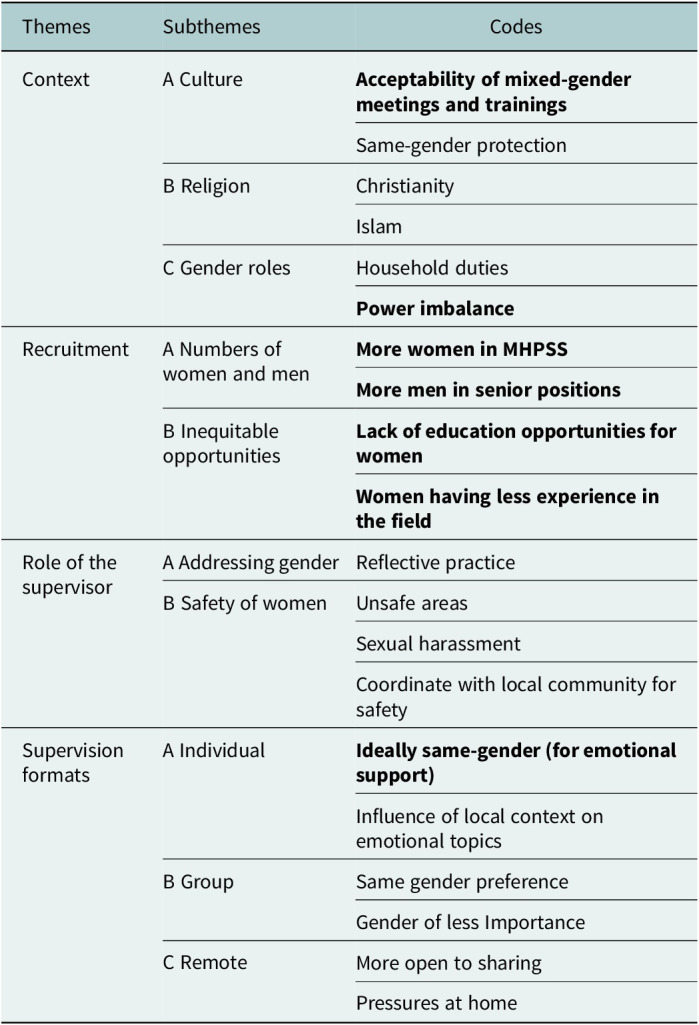人道主义背景下支助性监督的性别考虑:一项定性研究。
IF 3.3
2区 医学
Q2 PSYCHIATRY
引用次数: 0
摘要
支持性监督已被证明可以改善人道主义背景下心理健康和心理社会支持(MHPSS)工作人员的心理健康结果和工作保留率。然而,迄今为止,国际准则对性别对监督做法的影响评价不足,也没有记录在案。为了解决这一差距,对在不同人道主义背景下工作的12名MHPSS工作人员进行了定性访谈,以确定支持性监督中的关键性别因素。结果表明,监督中的性别受到MHPSS工作背景的影响;文化、宗教和性别角色被确定为关键因素。与会者讨论了招聘机制,强调了MHPSS方案中的性别分配不平等和机会不平等。还强调了处理受性别影响的权力动态和确保妇女在监督下的安全的重要性。最后,与会者讨论了各种监督形式中的性别差异。总之,研究结果表明,性别有可能影响MHPSS内的支持性监督,建议国际准则考虑人道主义背景下支持性监督中的性别差异。本文章由计算机程序翻译,如有差异,请以英文原文为准。


Gender considerations for supportive supervision in humanitarian contexts: A qualitative study.
Abstract Supportive supervision has been shown to improve mental health outcomes and job retention for mental health and psychosocial support (MHPSS) workers in humanitarian contexts. However, the impact of gender on supervision practices has been poorly evaluated and documented in international guidelines to date. To address this gap, qualitative interviews were conducted with 12 MHPSS staff working in diverse humanitarian contexts to identify key gender considerations in supportive supervision. Results show that gender in supervision is influenced by the context of MHPSS work; with culture, religion and gender roles identified as key elements. Participants discuss recruitment mechanisms, highlighting the unequal gender distribution and inequitable opportunities within MHPSS programming. The importance of addressing power dynamics impacted by gender and of ensuring the safety of women within supervision is also highlighted. Finally, participants discuss the gender differences across the various supervisory formats. Altogether, results indicate that gender has the potential to influence supportive supervision within MHPSS, and it is recommended that international guidelines account for nuances of gender in supportive supervision within humanitarian contexts.
求助全文
通过发布文献求助,成功后即可免费获取论文全文。
去求助
来源期刊

Global Mental Health
PSYCHIATRY-
自引率
5.10%
发文量
58
审稿时长
25 weeks
期刊介绍:
lobal Mental Health (GMH) is an Open Access journal that publishes papers that have a broad application of ‘the global point of view’ of mental health issues. The field of ‘global mental health’ is still emerging, reflecting a movement of advocacy and associated research driven by an agenda to remedy longstanding treatment gaps and disparities in care, access, and capacity. But these efforts and goals are also driving a potential reframing of knowledge in powerful ways, and positioning a new disciplinary approach to mental health. GMH seeks to cultivate and grow this emerging distinct discipline of ‘global mental health’, and the new knowledge and paradigms that should come from it.
 求助内容:
求助内容: 应助结果提醒方式:
应助结果提醒方式:


